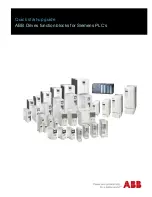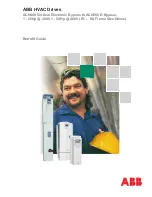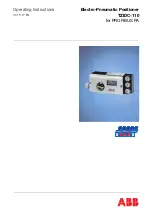
1
INSTALLATION, OPERATION and
MAINTENANCE
2
” to 8” Figure 625-D
Sewage Surge Relief Valve
INTRODUCTION
This manual will provide the information to properly
install, operate and maintain the valve to ensure a
long service life. The Figure 625-D Sewage Surge
Relief Valve is ruggedly constructed to provide years
of trouble-free operation with minimal maintenance.
CAUTION
The valve is NOT recommended for use with toxic or
highly corrosive fluids, fuels or fluids containing
hazardous gases
The Shop Order (SO) Number, Figure Number, size
and pressure rating are stamped on a nameplate
attached to the valve. Please refer to the SO number
when ordering parts.
FUNCTION
The Figure 625-D Sewage Surge Relief Valve is used
to protect systems against damaging surges resulting
from a sudden stoppage of flow. The valve is
normally closed and opens when the inlet pressure
increases to a pre-set pressure to discharge excess
pressure out of the system. The valve opens as far
and stays open for as long as needed to limit the
pressure rise. It slowly closes as the pressure
subsides below the opening pressure. The valve is
designed to accommodate solids and other matter
that may be present in sewage systems without
clogging.
RECEIVING AND STORAGE
Inspect the valve upon receipt for damage during
shipment. Carefully unload all valves to the ground
without dropping.
The valves should remain in a clean, dry, and weather
protected area until installed.
INSTALLATION
The Figure 625-D is a long radius elbow body valve
with ANSI Class 125 flanged connections. The valve
can be configured for installation in various
orientations, but it must be installed in the orientation
for which it was built to avoid oil spillage from the
reservoir.
Consult the drawings of record to verify the
configuration supplied and installed.
These valves are heavy, and awkward to handle,
ensure proper handling techniques are employed.
Handle heavy valves using slings around the valve
body and/or by the lifting eyes.
DO NOT LIFT
THROUGH THE YOKE.
Prior to installation ensure all debris, packing material
or other foreign material has been removed from both
ports.
Install the valve in the proper flow direction. The
discharge piping connected to the outlet of the valve
must be unobstructed and open to atmosphere.
If installed outdoors, below ground in a vault or in an
unheated area, adequate freeze protection must be
provided.
An adequate isolating valve should be installed
between the valve and the pipeline or system to
facilitate maintenance.
The valve is not designed to support adjacent
equipment, piping loads should not be imposed on the
valve and large valves should be properly supported.
Ensure mating flanges are square and parallel to the
valve flanges before tightening flange bolts.
Flat-faced flanged valves should be mated with flat-
faced flanges and full-face gaskets. If ring gaskets
are used the bolt material shall be ASTM A307 Grade
B (or equivalent). Higher strength bolting should only
be used with full-face gaskets.
Lubricate the bolts or studs and insert around flange.
Lightly tighten bolts until gaps are eliminated. Torque
bolts in an alternating pattern in graduated steps. If
leakage occurs wait 24 hours and re-torque the bolts
but do not compress the gasket more than 50% or
exceed bolt maximum torque rating.
OPERATION
The Figure 625-D surge relief valve is held closed by
the compression of springs. When the force of the
system pressure acting on the face of the valve disc
exceeds the spring force, the valve will lift off its seat
permitting a discharge of fluid from the system. The
valve will open as far as needed to discharge fluid at
the rate necessary to prevent a further rise in
pressure.
Содержание GA INDUSTRIES 625-D
Страница 6: ...5 Parts 7 and 36A not used on 2 to 3 sizes...
























